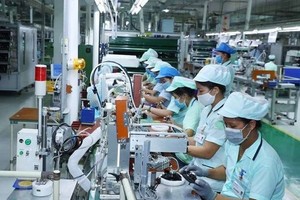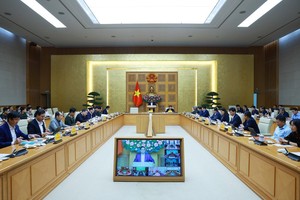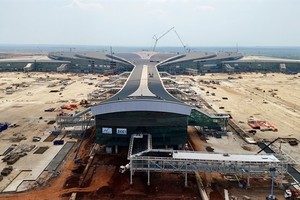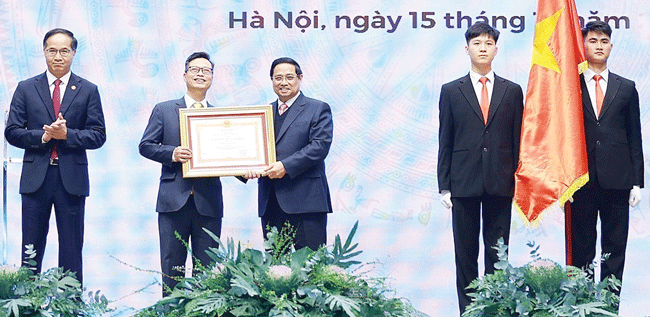
Speaking at the event, Director of the Central Institute for Economic Management (CIEM) Nguyen Dinh Cung said given impressive socio-economic achievements in 2018, Vietnam is expected to make breakthrough in 2019, towards achieving goals for 2016-2020.
The Government continues giving priority to macro-economic stability, business environment and resilience improvement, he said, adding that economic growth and inflation was kept under close watch with timely guidance during the first quarter.
Nguyen Anh Duong, head of the CIEM’s research board, said Vietnam needs to address challenges regarding macro-economic foundation mentioned in the macro-economic report for Q1.
During the first quarter, the gross domestic product (GDP) grew by 6.79 percent, lower than the same period last year but higher than that during 2009-2017.
Manufacturing and processing firms are less optimistic about production and trade while businesses still meet difficulties when joining the market, especially burdens after their business registration and access to transparent information.
The consumer price index (CPI) rose by 2.63 percent while basic inflation went up 1.83 percent, proving that the monetary policy remains stable. As of March 20, outstanding loans rose by nearly 2.28 percent, lower than last year’s same period.
Economists also acknowledged improvement in the efficiency of combining fiscal and other macro-economic policies.
However, delay in the issuance of legal documents remains while legal enforcement is still slow.
This year, Vietnam is expected to join new-generation free trade agreements such as the Comprehensive and Progressive Agreement for Trans-Pacific Partnership, the European Union – Vietnam Free Trade Agreement and the Common Effective Preferential Tariff (CEPT) Scheme, which will give a boost to exports but barriers in administrative and governance mechanism remain.
Participants stressed the need to improve macro-economic foundation and renew economic institutions for a modern socialist economy.
Vietnam’s GDP growth is forecast to reach 6.88 percent, trade surplus at US$3.1 billion and CPI roughly 3.71 percent in 2019.
























